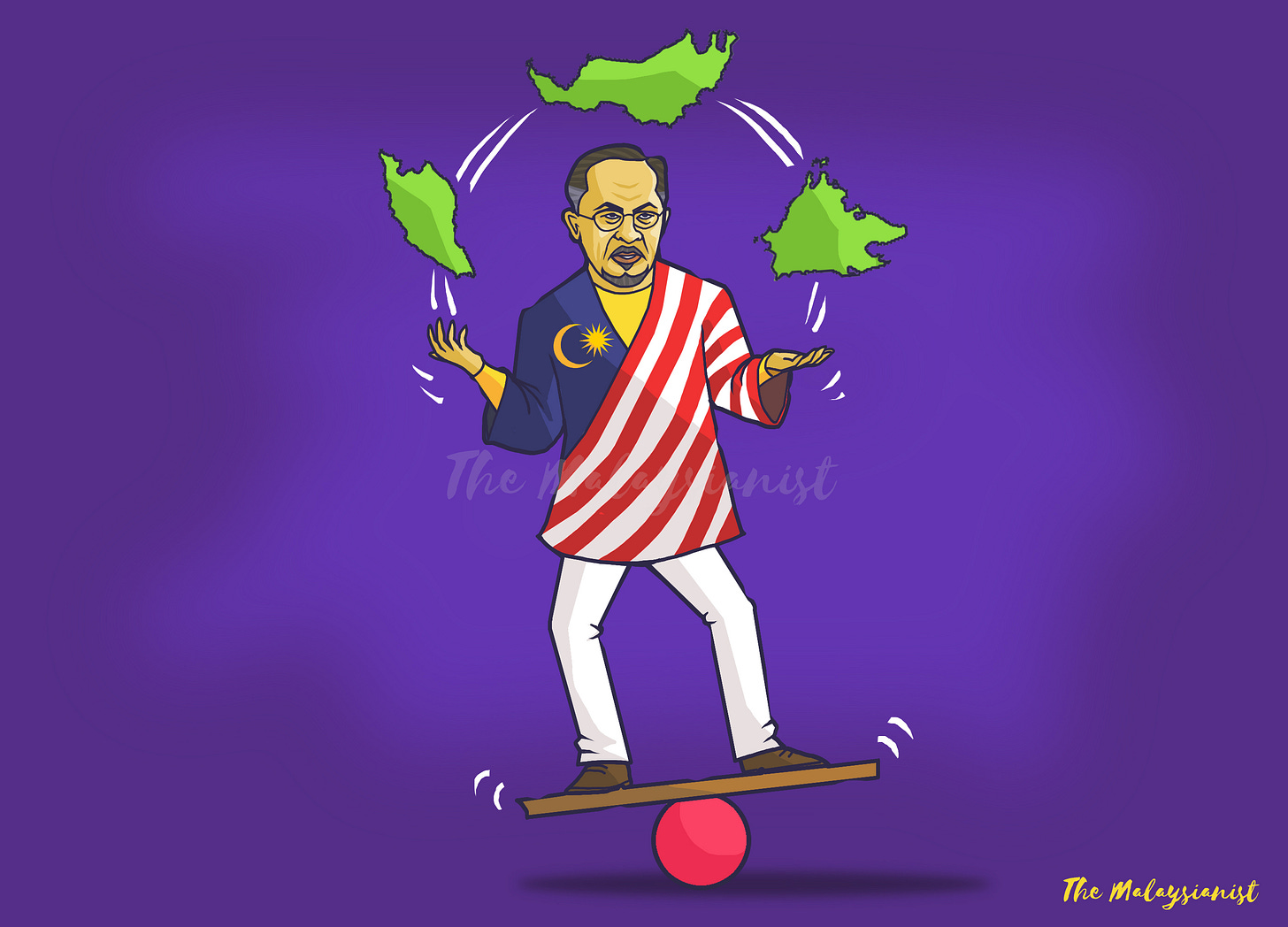Can the Federation hold?
Sixty-two years after its formation, Malaysia faces rising demands for autonomy.
Selamat Hari Malaysia! What does it mean to be Malaysian? It’s a question I come to time and again and it’s an answer that I can’t even provide, after all these years.
Someone once said it means to be displaced. That’s somewhat accurate.
But our fault lines are increasingly harder to ignore — more so in this day and age of social media — making it extremely difficult to genuinely rally almost everyone towards a cause.
What will Malaysia be if in the end her people do not continue to plant deep roots, but just see it as merely a transit point to somewhere else?
These days, in a borderless world, I can be working out of a country and pay my taxes there, but never be present or vested in its wellbeing.
Who’s to blame should this phenomenon become the defining mood of the day? After all, we can’t have cake and eat it, too.
First, the usual baller ICYMIs:
🚀 And, the BIG update: Prices go up October 1. This is perhaps the best time to plug an annual or founding member subscription.
Details here 👇🏽
You’re reading a paid version of The Malaysianist, a newsletter on money and power by writer and journalist Emmanuel Samarathisa.
I run monthly and annual subscriptions. There’s also the atas or founding member tier where you get all the perks of an annual subscription and more, such as an annual or founder’s report and insight into how this little corner of the internet fared throughout the year.
💡 The founding member tier is a sliding one, meaning it starts at US$60/year and you can raise it as high as you want — in case you want to give more, which I welcome anytime.
Can the Federation of Malaysia hold?
Sixty-two years after its formation, the idea of Malaysia as a federation is facing one of its sternest tests.
Three states — Sabah, Sarawak and Johor — have recently pushed back against federal authority.
Their demands for autonomy, resource control and recognition are not new — among the earliest high-profile flashpoints was Singapore’s separation in 1965 — but they are growing louder.
The easy answer is that this is the time to bargain hard, given that Prime Minister Anwar Ibrahim does not command a single, monolithic bloc in Parliament.
But these real-time assertions of what was once an unquestioned framework — 13 states and three federal territories bound by a constitutional monarchy and parliamentary system — are moving beyond historical grievances.
We now see legal battles, fiscal manoeuvres and symbolic gestures, as states increasingly present themselves as equal partners rather than subordinates.
We are definitely not witnessing the collapse of the Federation, but the tension is undeniable.





